Ursula von der Leyen’s Balkan Tour and the Stakes of Integration
In October, Ursula von der Leyen set out on a journey that could redefine Europe’s unfinished story. From Tirana to Tivat, Sarajevo to Belgrade, Pristina to Skopje, the European Commission President carried both the language of partnership and the weight of expectation. This was no ceremonial tour. It was a reminder that, after years of drift, the Western Balkans are once again part of Europe’s strategic core — not its waiting room.
How Albania Became the Region’s Digital Reformer
If the tour’s message began in Tirana, its emotional centre remained there. Von der Leyen’s posts from Albania were more than protocol — they were personal. She praised the country’s “impressive progress” in governance and digital reform, calling it “a model for the region.”
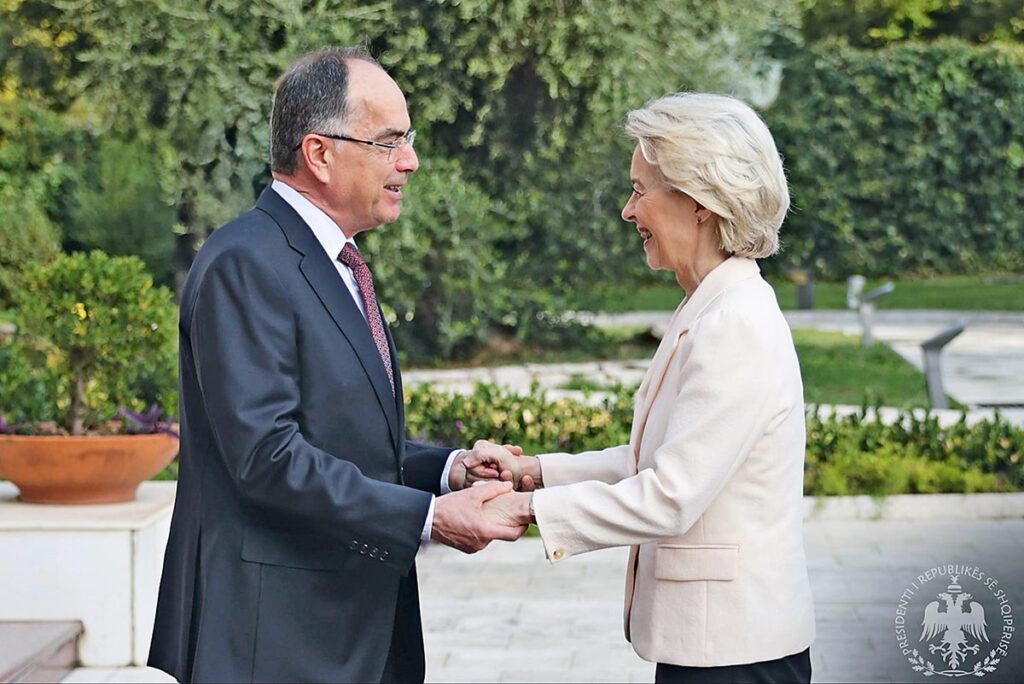
At the EU–Western Balkans Investment Forum, she announced that Albania would join the Single Euro Payments Area (SEPA), a step that will cut transaction costs for businesses by up to €500 million annually. Alongside Prime Minister Edi Rama, she revealed that ten business deals were signed on the spot — with another two dozen under discussion — unlocking €4 billion in new investment and confirming €100 million in upcoming EU support under the Growth Plan.
The visit to the Port of Durrës, poised to become one of the Adriatic’s largest logistics hubs, underscored how infrastructure now anchors integration. “Albania is no longer waiting at Europe’s door. It’s helping us build the house,” von der Leyen wrote afterwards. Rama, in turn, reaffirmed Albania’s ambition to complete all accession chapters by 2027 — a timeline that mirrors the country’s growing confidence as a regional anchor of reform.
Montenegro — Europe’s Star Pupil
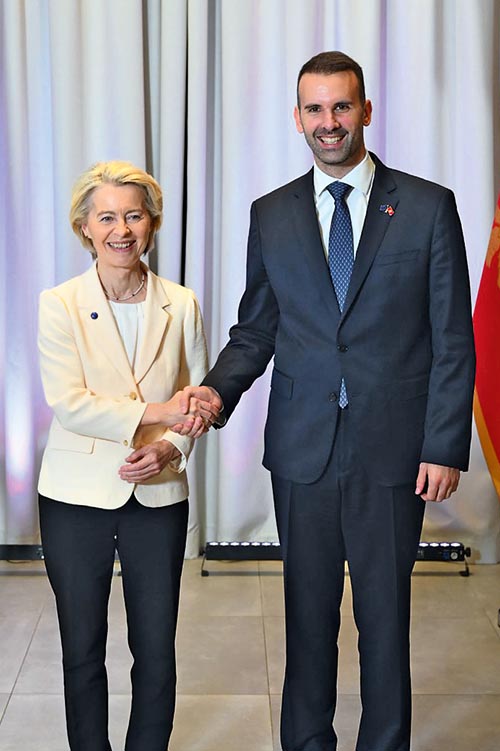
If Tirana was policy, Tivat was theatre. Standing on Montenegro’s Adriatic shore, von der Leyen turned what might have been a routine stop into an affirmation of belonging.
“Every time I come to Montenegro, I can feel the heart of Europe beating,” she said, reaffirming that Podgorica remains the frontrunner of EU accession.
She announced €8 million in pre-accession funding — the first slice of a €380 million facility — and confirmed that roaming charges between the EU and Montenegro will be abolished by 2026.
The symbolism was deliberate: Montenegro’s steady alignment with EU values stands as proof that progress is rewarded, while hesitation carries a cost.
In Bosnia, Reforms Must Come Before Rewards
From the Adriatic’s optimism, von der Leyen moved to a more sobering stop — Sarajevo and the Srebrenica Memorial. There, remembrance met realism. She urged Bosnia’s tripartite Presidency to accelerate judicial and public-administration reforms, stressing that accession talks cannot open without credible progress.
Von der Leyen reminded leaders that Bosnia now “stands on the threshold” of the EU but that the €1 billion earmarked under the Growth Plan will remain conditional on concrete reform milestones, including the appointment of a chief negotiator for accession talks.
Her presence at Srebrenica — heavy with symbolism — served as a reminder that memory still defines Europe’s moral geography. The EU’s hand remains extended, but results must precede recognition.
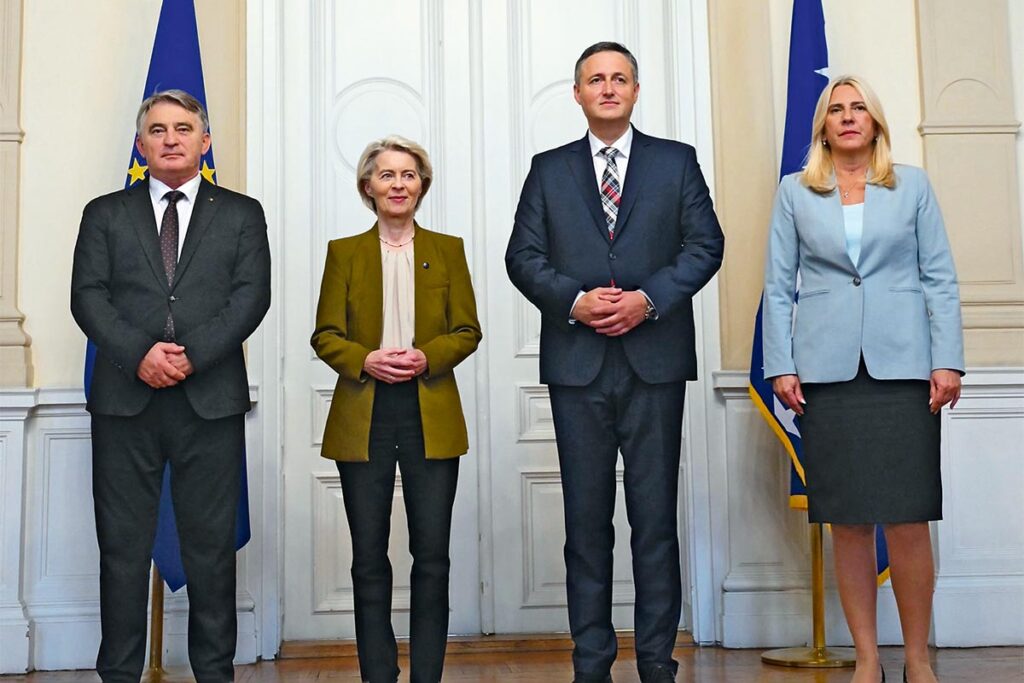
Serbia Balances Between Promise and Pressure
In Belgrade, the tone mixed pragmatism with pressure. Von der Leyen praised Serbia’s investment record and infrastructure upgrades — especially the Serbia–Bulgaria gas interconnector — but was equally blunt about reforms.
She invited Serbia to join the EU’s collective gas-buying mechanism, a strategic move to reduce reliance on Russian supplies and strengthen regional energy security. “This will guarantee that Serbian families will be safe and warm in winter,” she said, offering a tangible benefit of deeper integration.
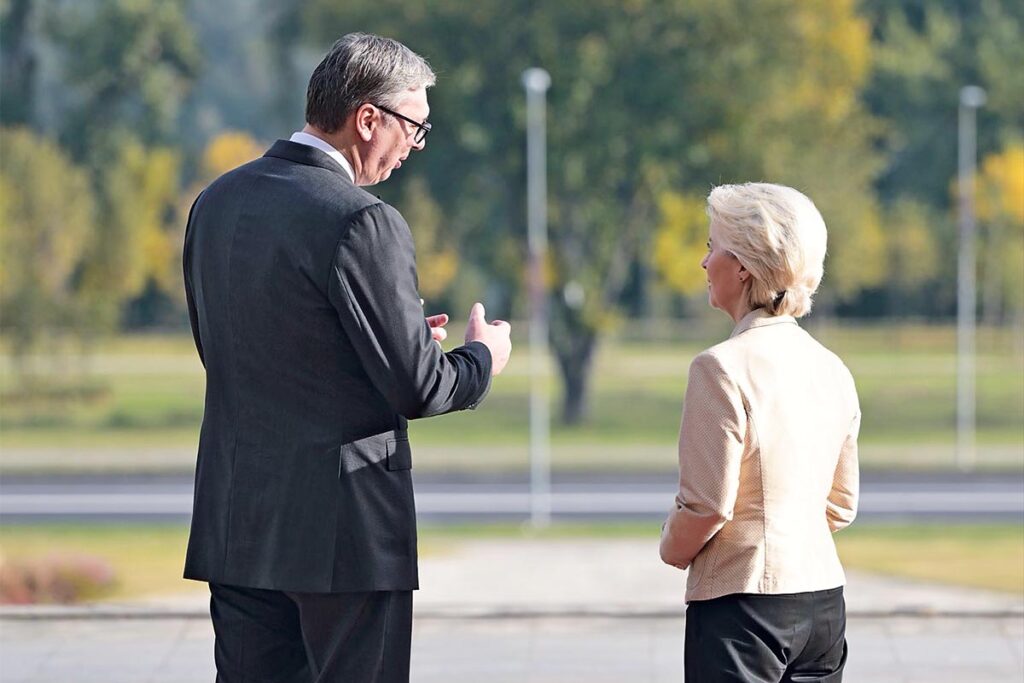
Yet she also urged stronger alignment with EU foreign policy, including sanctions against Russia, noting that Serbia is currently “around 60 percent aligned — but more is needed.” She called for swift progress on the rule of law, electoral reform, and media freedom, while referencing the country’s ongoing civic protests as “a sign of democracy in motion.”
For Belgrade, it was both an invitation and a warning: Europe’s support will match Serbia’s willingness to reform.
Kosovo and North Macedonia — Integration as Inclusion*
In Pristina, von der Leyen met President Vjosa Osmani and caretaker Prime Minister Albin Kurti, reaffirming the EU’s commitment to Kosovo*’s energy and digital transition. She stressed that “integration must be felt in everyday life,” citing investments in green infrastructure and cross-border digital connectivity.
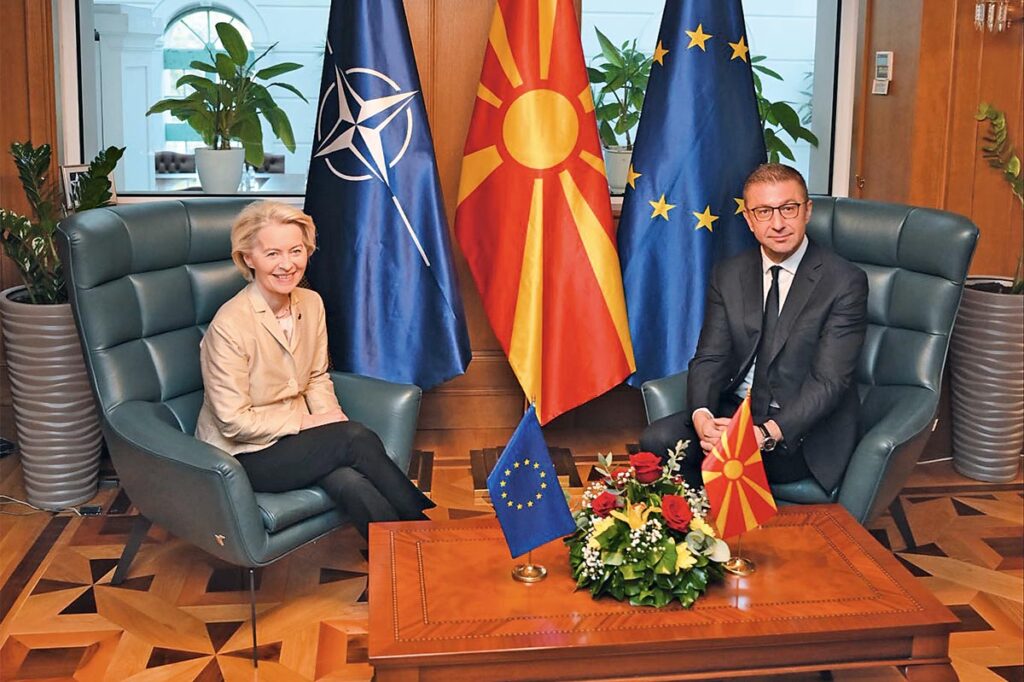
In Skopje, she urged North Macedonia to maintain its reform momentum, particularly constitutional changes tied to its EU path. She also announced the expansion of the EU’s high-performance computing network into the region, including new “AI factory antennas” in North Macedonia and Serbia — signalling Europe’s intent to build technological bridges, not waiting rooms.
Between Hope and Habit
Von der Leyen’s Balkan tour was more than a display of goodwill; it was Europe’s strategic recalibration in action. In an era of global rivalry — over energy, data, and supply chains — the Western Balkans are no longer peripheral. They are part of Europe’s frontline.
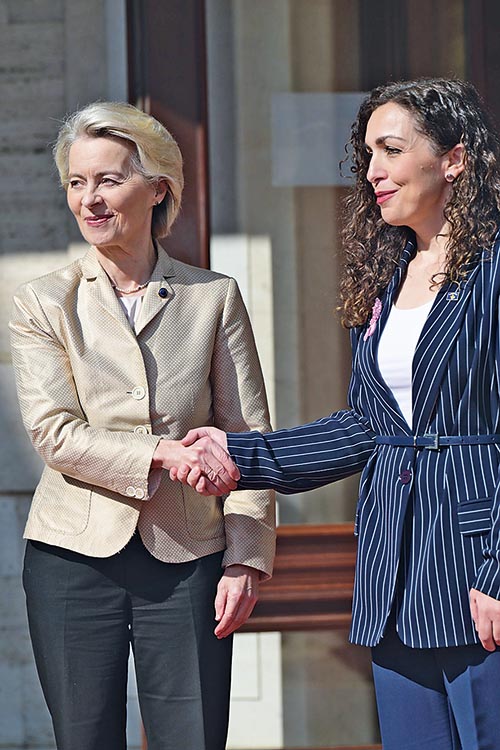
Still, the test will not be measured in speeches or photo calls, but in follow-through. Montenegro shows what steady progress looks like. Albania has the momentum to match it. Bosnia and Serbia face the harder road of reform and reconciliation.
Europe’s next success story will depend on whether enthusiasm can survive the visit — and whether promises can be turned into policies that endure.
A Europe in Waiting
What makes a union endure? Perhaps the answer lies in co-authorship — when smaller nations stop seeing themselves as applicants and start acting as contributors to a shared future.
Von der Leyen’s gestures — SEPA access, roaming abolition, AI networks, energy links, and clean-tech investments — are more than policy measures. They are invitations.
The question now is not whether the Western Balkans belong in Europe.
It is whether they can — and will — stay the course.
This designation is without prejudice to positions on status and is in line with UNSCR 1244/99 and the ICJ Opinion on the Kosovo declaration of independence.

